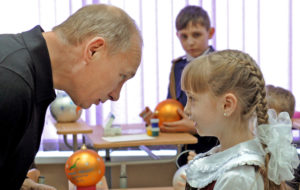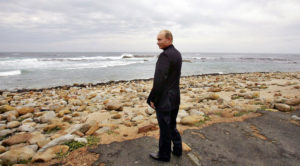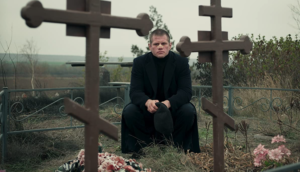When I was 15, back in the very early Eighties, I spent the best part of a summer is a sleepy corner of “la France profonde”. The family I stayed with were hard-up members of the nobility, trying to earn a living from their meagre estate while the moat dried up and their chateau slowly tumbled about their ears. During the course of my stay, Madame — the mother of six — made a trip to Paris for the first time in decades. Normally unruffled, she returned in a state of shock. “Paris maintenant, c’est un macédoine,” she declared, meaning that, compared to the last time she had been there, the capital had become what we would now call “diverse”.
The French are decreasingly guarded about exposing their dislike of the emerging demography of France — where a large and growing North African population inhabits suburban rings around the tiny cores of many historic cities from the Mediterranean to the Channel. I thought of my hostess from 40 years ago when travelling with my wife near Rheims last year. Our hotelier, a woman with an elegant home and her own family mark of champagne, told us enthusiastically about the wonderful Monsieur Zemmour, an intellectual writer and broadcaster who had not at that stage declared himself as a presidential candidate but who she thought might just save France.
Arriving in the village in the Pyrenees Orientales where we spend much of our time, we heard the same from our elderly, highly cultivated neighbour and an artisan friend of hers. Of course, neither would actually vote for Zemmour if he stood, they assured us (not entirely convincingly), but he was very impressive. And had we noticed the first veils arriving in the nearest town and occasionally in the village itself?
This is a region that Pepin and his son Charlemagne captured from the Moors in the late ninth century, a fact attested to by a series of local Romanesque chapels dating from the following two centuries. Our neighbour and her friend felt they were witnessing a reversal of the Carolingian handiwork: an area once wrested from the Muslims by the Christians was being wrested back, not through warfare but through migration and a higher birth rate.
The French have long been obsessed by demography — and with good reason. When Napoleon dominated the continent early in the nineteenth century, his population was at least half as large as Britain’s — even including Ireland — and also half as large again as what was to become Germany. In its glory — in the seventeenth, eighteenth and early nineteenth centuries — France was Europe’s population behemoth.
But whereas in the century before the outbreak of the First World War, France’s population grew from around 30 to around 40 million, Britain’s rose from around 25 million to around 45 million, despite the massive emigration by which people of British origin had settled vast swathes of the globe, from California to Tasmania. Over the same period, not only was Germany unified, but its population rose from a little over 20 million to around 65 million. Industrialisation was also slower in France than in Britain or Germany, in part due to the lack of raw materials; the best iron deposits were lost to the Germans with Lorraine. But it was a lack of manpower which proved decisive, whether in the factories or at the front.
It was clear long before the bloodiest battles on the western front that France was a second-rate power dependent on British and Russian allies just to hold its own. The defeat of 1870 at the hands of the Prussians and their allies was a national trauma; the ignominy of the lost lands beyond the ligne bleu of Alsace and Lorraine were deeply etched on French consciousness. And population — or lack of it — was blamed. As early as 1849, a French parliamentary deputy saw national decline as rooted in demography: “The first element of power is population, and on this point … France is in full decay.” By the time of the outbreak of war in 1914, more than half of French parliamentarians were members of the Parliamentary Group for the Protection of Natality. French family sizes had shrunk long before those of other European powers, for reasons till not entirely clear. We know enough to understand that the cause was a comparatively low birth rate, though, rather than a high death rate: perhaps the French peasants figured out how to limit their procreation earlier than people elsewhere.
But if defeat in the Franco-Prussian war excited a demographic alarm, the travails of 1914-1918 turned the problem into a source of despair. French Prime Minister Georges Clemenceau may have got a lot of what he wanted in the Treaty of Versailles in terms of punishing Germany, but he declared: “The treaty does not say that France must undertake to have children but it is the first clause which should have been included in it … One can take all of Germany’s guns, one can do whatever one likes, France will be lost because there is no more Frenchman.”
Inter-war, the French made efforts to boost their numbers. Prolific mothers were offered medals. The Alliance pour l’Accroissement de la Population française advocated larger families. It also supported immigration of Europeans, ideally Catholics, who could be absorbed into the French nation. Hundreds of thousands of Poles, Belgians and Italian came to live in France between the wars; France had a foreign-born population three times as large as the UK’s in the 1930s (almost six times if the Irish are excluded from the UK figure).
And yet, in 1937 Paul Reynaud, a minister and later prime minister, still lamented: “There is a single factor which dominates everything: the demographic factor. Forty-one million Frenchmen face sixty-seven million Germans and forty-three million Italians, these last two countries linked by the Berlin-Rome axis.… As far as numbers are concerned, we are beaten.” Germany’s fertility rate had plummeted as well, but the enemy over the Rhine was still far too numerous for France to compete. Population pessimism was a critical component in the general atmosphere which led to the collapse of 1940.
After the Second World War, things looked up — demographically and in every other way. France had its own baby boom, moderate though it was, and although fertility rates have fallen in recent decades, they are still higher than in most other European countries, not least Germany. A residue of Catholicism as well as an atmosphere conducive to women combining parenthood with a career seem to have helped.
The French population also swelled with the arrival of people from the former colonies, first the pieds noirs fleeing the conflict in Algeria, then Algerian Muslims and migrants from the once vast French Empire south of the Sahara. But here lay the rub. Earlier migrant groups had been quite easily absorbed. In the Pyrenees Orientales, for example, hundreds of thousands of Spaniards fled Franco’s advance in 1939, and today their descendants have completely merged with the locals who share their Catalan identity. But although France’s republican and secular ideology demurs from formally categorising citizens, those from more distant cultures have not integrated to the same extent.
That’s not to say that France completely failed in its efforts to absorb this new wave of immigrants. A survey from, admittedly 17 years ago, showed Muslims in France much more likely to identify primarily with their nation than with their religion — when compared with those in Germany, Spain and the UK — and more likely to hold favourable views of Christians and Jews.
But, since then, France has suffered particularly acutely from Islamist terrorism. The attacks on the Bataclan and the Charlie Hebdo offices are just the most notorious examples; similar incidents in a Jewish school and a supermarket, as well as the murder of a teacher offending Islamic sensibilities, have angered and stirred up the country. Around half of French Muslims report experiencing discrimination and two thirds believe their religion is negatively perceived by their fellow citizens.
Moreover, though the French state avoids and in some cases bans the collection of data by religion or ethnicity, there is plenty of evidence — both anecdotal and statistical — that French Muslims are more prone to deprivation and unemployment than their non-Muslim fellow citizens.
Now, the political rhetoric around French demography is as charged as it was 100 years ago. Today the worry comes not from across the Rhine but from over the Mediterranean. A demographic pessimism hangs over France much as it did back when Reynaud despaired in the face of a larger German population. More than 60% of French people believe that white Christians will be rendered extinct by Muslims. There is talk of lost suburbs where women and men are increasingly separated in public. A French journalist who worked on a story of no-go Islamic zones recently received death threats and is under police protection. Around 20 retired generals have warned that Islam is taking over parts of the country and have raised the possibility of a racially-driven civil war.
In this febrile atmosphere, it is small wonder that two of the leading candidates in the fast-approaching presidential election are explicitly anti-Islam. Zemmour has said he is standing “to save France from Islam” and has called on Muslims to abandon their religion. Marine Le Pen has proposed a headscarf ban and compared Muslims praying in the street with the Nazi occupation. Not to be outdone, the centre has followed the lead of the Right: President Macron has vowed to fight “Islamic separatism” and his interior minister has taken an activist line in controlling Muslim political associations. Although the Left is generally more sympathetic to minorities, it has a strong tradition of secularism (laïcité) which often rubs up against Muslim practice.
The consensus is that Macron and his associates will succeed in stealing the thunder of the two far-Right candidates and that he will emerge as the clear winner. Despite the enthusiasm of my interlocutors last year, Zemmour seems to be sinking while Le Pen rises. She will have to do much better in debates with Macron than she did in 2017 if she is to stand a chance of not being trounced; Macron’s superior intellect counts a lot with the French, who are unapologetic about their respect for brain power.
But bear this in mind: when Le Pen’s father faced Jacques Chirac in the second round in 2002, the far-Right candidate received just 18% of the vote; 15 years later, his daughter got almost 34%. In a France once more obsessed by its own demographic decline, the unthinkable is increasingly becoming thinkable; the unsayable becoming sayable. Nothing can be discounted.
Disclaimer
Some of the posts we share are controversial and we do not necessarily agree with them in the whole extend. Sometimes we agree with the content or part of it but we do not agree with the narration or language. Nevertheless we find them somehow interesting, valuable and/or informative or we share them, because we strongly believe in freedom of speech, free press and journalism. We strongly encourage you to have a critical approach to all the content, do your own research and analysis to build your own opinion.
We would be glad to have your feedback.
Source: UnHerd Read the original article here: https://unherd.com




